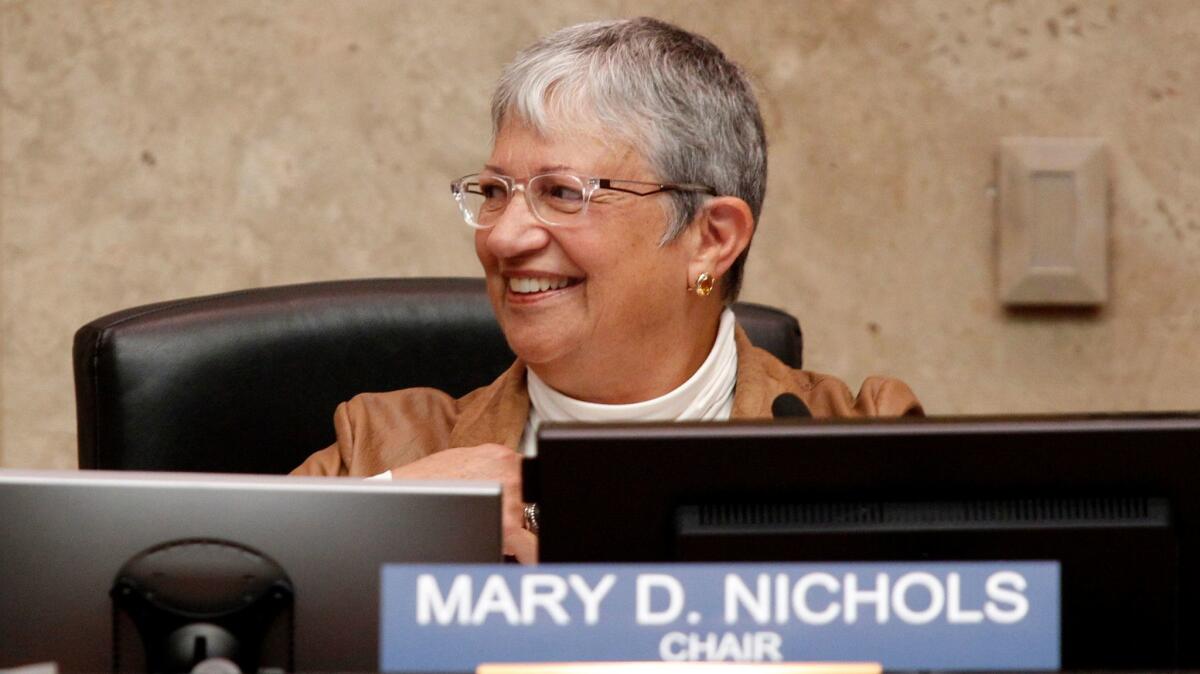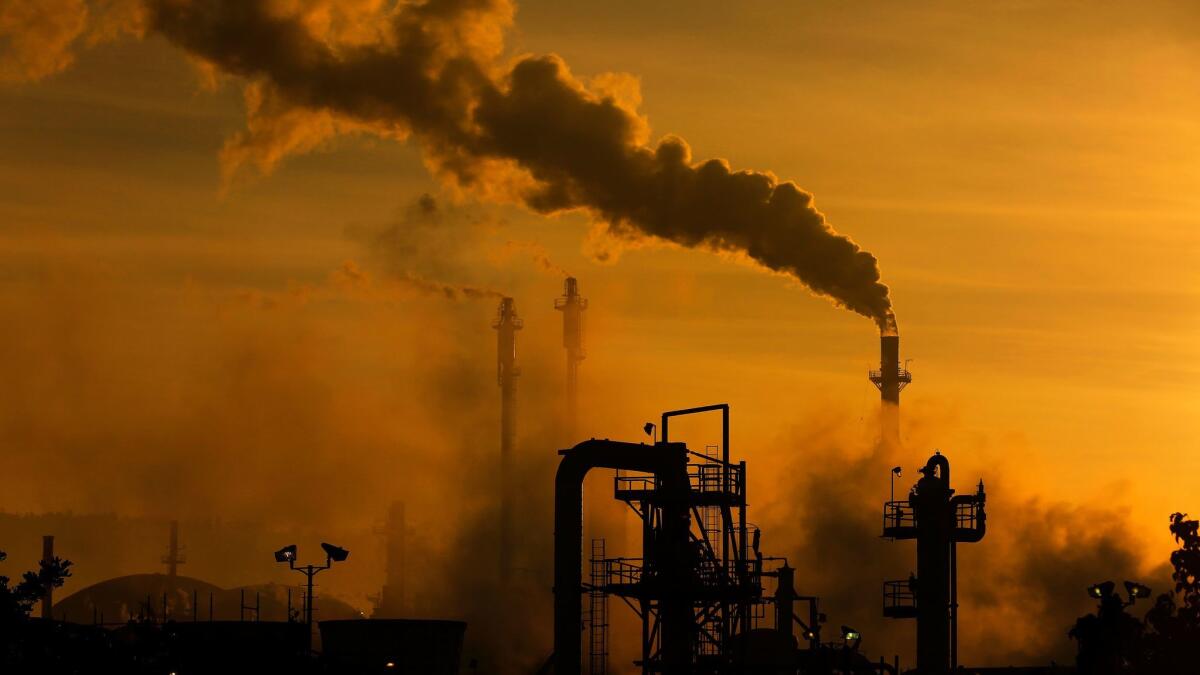California’s cap-and-trade program survives a legal battle in a win for Gov. Jerry Brown and environmentalists

A cornerstone of California’s battle against climate change was upheld on Thursday by a state appeals court that ruled the cap-and-trade program does not constitute an unconstitutional tax, as some business groups had claimed.
The 2-1 decision from the 3rd District Court of Appeal in Sacramento does not eliminate all the legal and political questions that have dogged the program, which requires companies to buy permits to release greenhouse gases into the atmosphere.
But environmental advocates dismayed by President Trump’s decision to roll back federal regulations in Washington were buoyed by Thursday’s victory, which preserves the only program of its kind in the country.
“This is great news for one of the world’s most ambitious climate programs and one of the best tools to solve climate change globally,” said Erica Morehouse, a lawyer with the Environmental Defense Fund. “We need that kind of positive news more than ever these days.”
The court case began four years ago and has been a cloud over the state’s efforts to fight global warming. California has pointed to its cap-and-trade program as an international example of how financial incentives can be used to reduce emissions. Nine states on the East Coast have a similar system, but it applies only to power plants, while California’s program affects nearly its entire economy.
The program has also been an important source of revenue for the state, with billions of dollars generated by auctioning off pollution permits. The money is required to be used on projects that reduce emissions, and Gov. Jerry Brown is counting on some of it to help finance the bullet train from Los Angeles to San Francisco.
“Our climate policies will continue to drive innovation and clean energy, deliver good clean tech jobs, and make it possible to continue to invest in programs, especially in disadvantaged communities, to reduce greenhouse gases and improve the quality of life,” said Mary Nichols, chairwoman of the Air Resources Board, the agency that runs cap and trade.
Two associate justices on the appeals court panel, Elena J. Duarte and M. Kathleen Butz, sided with state officials who said the cap-and-trade program falls within their power to regulate industry.
“It is not accurate to liken the auction system to payment for the privilege to stay in business in California,” they wrote. “It is a payment for the privilege to pollute the air in California.”
The third associate justice on the panel, Harry E. Hull Jr., agreed with business groups that the program functioned as a tax, partially because of the wide variety of ways the revenue has been used by the state.
“I can only conclude that the program is a tax in ‘something else’ clothing,” he wrote.

It’s unclear whether the California Chamber of Commerce or the conservative Pacific Legal Foundation, both of which expressed disappointment Thursday, will appeal to the state’s highest court.
“We are reviewing the decision and evaluating our options,” said Denise Davis, a spokeswoman for the chamber.
More challenges remain for the cap-and-trade program, which was created under a 2006 measure requiring the state to reduce its greenhouse gas emissions to 1990 levels. Because the law sets a 2020 deadline, some doubt regulators can continue running the program past that point without a new law.
State lawmakers are debating whether to extend cap and trade into the future, a step that could require a two-thirds vote in both houses of the Legislature — the threshold for approving tax measures — to bulletproof the program from any additional legal uncertainty.
“We have one more mole to whack,” said Alex Jackson, a San Francisco-based lawyer for the Natural Resources Defense Council.
Twitter: @chrismegerian
ALSO:
As the White House changes course on climate change, California stubbornly presses forward
Earth sets heat record in 2016 — for the third year in a row
Updates on California politics
Updates from the campaign trail
More to Read
Get the L.A. Times Politics newsletter
Deeply reported insights into legislation, politics and policy from Sacramento, Washington and beyond. In your inbox three times per week.
You may occasionally receive promotional content from the Los Angeles Times.







